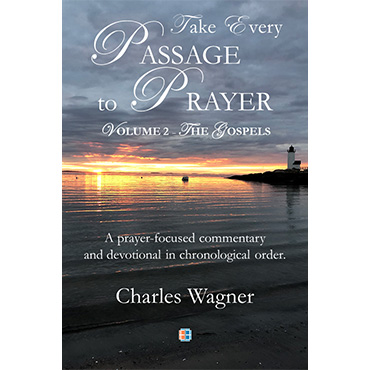The Gramazin Blog

Jesus Shares the Parable of the Weeds
Take Every Passage to Prayer - Volume 2, The Gospels
Friday July 12, 2024
Matthew 13:24-30, 36-43
Father, how can I spend my days and nights watching TV? Surfing the Internet? Playing games? You are withholding judgement of this world because believers like myself are supposed to be working to bring the gospel to the lost. The wrath of God is on hold because I’m supposed to be sharing the gospel with others, through my words and through my actions. Father, help me to do the work of evangelism and to no longer sit on my backend being entertained by the meaningless pleasures of the world. Amen.
Father, someone, most likely a disciple, must have asked a valid follow-up question:
“Well, if there are people who will never be saved, why are they still here? Wouldn’t it be better for society if godless people were just removed?”
Jesus answered with a parable.
A farmer was having a feud with someone (his enemy). He planted a field with wheat seed. In the middle of the night, his enemy planted weeds in the same field. Time passed and eventually the field began to sprout with both wheat and weeds. The farmer’s servant asked him what happened, wondering if the farmer had purposely or mistakenly planted weeds as well as the wheat. The farmer attributed the weeds to the work of his enemy. The servant asked if he should pull up all the weeds. The farmer told him not to – he might accidentally pull up the wheat in the process. The farmer told him to let the wheat and the weeds continue to grow. When they harvest the field, they will separate the wheat from the weeds and bundle the weeds and burn them in a fire and put the wheat in the barn.
The text suggests the crowd, if they heard the parable, never received an explanation for it. The text tells us that Jesus and the disciples left the crowd and went back to the “house”. The disciples asked Jesus to explain the parable. I paraphrase Jesus’ response in 21st century context:
Through Jesus’ ministry, millions of people have come to faith in Him around the world. However, there are even more people across the globe who don’t know Jesus. Many of them are evil and are led by Satan. How can Jesus remove the evil people from the globe? By thousands of planes crashing at once? No. There are believers on those planes. By an earthquake that shakes an entire nation? No. There are believers who live in that nation as well. By a global plague like the medieval Black Plague? No. There are believers across the globe who will get sick and die as well.
The simple answer as to why Jesus doesn’t wipe the earth clean of wicked people is that He would also wipe the earth clean of righteous people at the same time. It is the righteous people on the globe who forestall the cataclysmic “end-of-the-world” destruction that is long overdue as justice for the sin and rebellion against You. It is the righteous people in America that have prevented this nation from being wiped out for our decadence and rebellion from You.
This parable reminds us of Genesis 18:23-33. In that passage, Abraham asked You if You would destroy Sodom if there were 50 righteous people there. You told him You would not. He then asked You the same question about 45, 40, 30, 20, and 10 people. In each case, You answered the same – You would not destroy Sodom because of the few righteous people who live in it.
Father, it is clear that You want the righteous people to be in this world doing their work until the very end of time. What is their work? To share the gospel of Jesus Christ with as many people as possible, in hopes that all will be saved (1 Timothy 2:4). If there is a cataclysmic removal of the wicked from this world, it can only happen at the end of history when there is no further work of evangelizing for the church to do. It is at that time that the angels will be sent to gather everyone from the earth, both believers and non-believers, and to bring them before Jesus for judgement. All who cause sin and do evil (reject Jesus as their Savior) will be thrown into hell where they will experience great sorrow and remorse (weeping) as well as great bitterness and anger with their previous decisions on earth (gnashing of teeth). Believers, on the other hand, will be welcomed into Your Kingdom where they will be purified and shine as bright as the sun, free from all guilt and shame of sin and rebellion.
Whomever wants to be rescued from hell, let them hear this message of coming judgement.
Amen.
As a quick review, we saw in Matthew 4:13 that Jesus moved from His childhood home in Nazareth and “lived” in Capernaum. While the text does not say Jesus had a house there, it is reasonable to suggest that He “lived” at a particular address. He either owned or rented the place (paid for with His carpentry earnings) or He was given a place to stay for free. Whatever was the arrangement, Jesus had a specific address He returned to often, as I believe He did in this passage as well.







